Keynote & Featured Speakers
Keynote, Wednesday, April 8
Beyond the Digital Revolution: Tertiary/Post-Secondary Education in the Age of Disruption
Nicky Mohan
CoFounder, InfoSavvy21
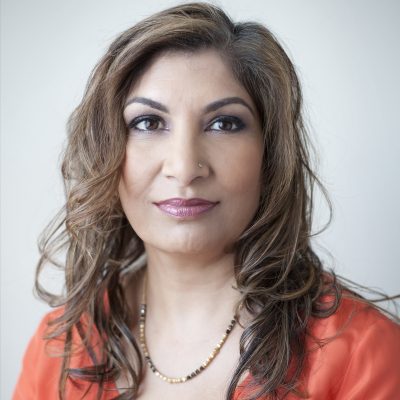 Abstract: The traditional four-year college experience is as British as “Bob’s your uncle.” So is the belief that higher education provides a one-way ticket to a better life. But with student debt out of control and unemployment of college graduates at historic levels, people are beginning to question that value. In this provocative session, the presenter argues that the higher education system as we know it is broken. The great credential race has fostered an environment where even middle-tier institutions can charge elite university-level tuition while concealing staggeringly low graduation rates, and churning out graduates with few of the skills needed for a rapidly evolving economy. The presentation not only turns a critical eye on the current state of higher education but also predicts how technology and innovative thinking will transform it for the better. Mobile devices, social networks, games-based and virtual learning environments, hybrid classes, adaptive learning software, the unbundling of traditional degree credits, and the Uberfication of education will expand access to high-quality education regardless of budget or location, and tailor lesson plans to individual needs. One thing is certain—the Class of 2024 will have a radically different college experience than their parents. Attendees will be provided with access to an extensive digital library of resources aligned to the Beyond the Digital Revolution presentation.
Abstract: The traditional four-year college experience is as British as “Bob’s your uncle.” So is the belief that higher education provides a one-way ticket to a better life. But with student debt out of control and unemployment of college graduates at historic levels, people are beginning to question that value. In this provocative session, the presenter argues that the higher education system as we know it is broken. The great credential race has fostered an environment where even middle-tier institutions can charge elite university-level tuition while concealing staggeringly low graduation rates, and churning out graduates with few of the skills needed for a rapidly evolving economy. The presentation not only turns a critical eye on the current state of higher education but also predicts how technology and innovative thinking will transform it for the better. Mobile devices, social networks, games-based and virtual learning environments, hybrid classes, adaptive learning software, the unbundling of traditional degree credits, and the Uberfication of education will expand access to high-quality education regardless of budget or location, and tailor lesson plans to individual needs. One thing is certain—the Class of 2024 will have a radically different college experience than their parents. Attendees will be provided with access to an extensive digital library of resources aligned to the Beyond the Digital Revolution presentation.
Bio: Dr. Nicky Mohan is a global citizen by choice. Born and raised in South Africa, she now shares her time between New Zealand and Canada. Nicky has been a classroom teacher, a school and university leader, an instructional designer, a business sector manager, a corporate trainer, an author, and an international speaker. After working in the public education sector for more than 20 years in both South Africa and New Zealand, she moved to the private sector, joining an educational service provider as a Learning and Development Manager. Her principle responsibility was for the design and delivery of professional development courses and resource materials.
Nicky is currently the Managing Partner of the InfoSavvy Group (Canada), and Director and co-founder of SpringBoard21 (USA), both international educational consulting firms. Nicky was recently appointed as a member of UNESCO’s Teacher Task Force core committee, focusing on the role of AI in Education. During the last ten years, she has made hundreds of presentations in more than 20 countries.
Nicky wants to make a difference where it matters most – and that starts with education. Her mission is to help teachers from different settings and working conditions look beyond their surface differences, to discover what they have in common: a relentless drive to improve learning for all students – and in doing so, to prepare them for their future and not society’s past. Most of all, she wants our conversations as educators to shift from, “Why that won’t work here,” to, “Learn, adapt, share and grow together.”
Keynote, Thursday, April 9
Making the Future: The Future of Making
Sylvia Martinez
Author, Principal Advisor to Columbia University’s FabLearn Fellows
 Abstract: Making in education connects educators around the world in a quest to make education more authentic and relevant. We stand on the shoulders of giants who articulated new understandings of what learning could be and new ways to explore powerful ideas. In the present, we strive to deepen our commitment to provide authentic learning opportunities for all young people. We look into the future to see what the children in today’s classrooms will experience, and support them as they become changemakers and global citizens.
Abstract: Making in education connects educators around the world in a quest to make education more authentic and relevant. We stand on the shoulders of giants who articulated new understandings of what learning could be and new ways to explore powerful ideas. In the present, we strive to deepen our commitment to provide authentic learning opportunities for all young people. We look into the future to see what the children in today’s classrooms will experience, and support them as they become changemakers and global citizens.
Together, let’s explore the past, present, and future of making in education so that we can equip children with the tools and mindset to solve the challenges of the future, and make the world a better place for all.
Bio: Sylvia Martinez is co-author of Invent to Learn: Making, Tinkering, and Engineering the Classroomhelping teachers bring the exciting tools and technology of the modern world to classrooms. She advocates for student-centered project-based learning with an emphasis on STEAM for all.
Sylvia is principal advisor to the Columbia University FabLearn Fellows, a group of global educators researching and developing hands-on, minds-on projects and curriculum. She also ran educational non-profits and headed product development for consumer software, video games, and educational games at several software publishing companies.
Martinez started her career designing high frequency receiver systems and software for GPS navigational satellites. She holds a masters in educational technology and a bachelors in electrical engineering. For more information, visit sylviamartinez.com
Keynote, Friday, April 10
Mapping For a Better World
Elizabeth Langran
Marymount University, SITE President-Elect
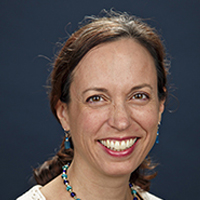 Abstract: How can we help prepare students to become engaged citizens in their communities? Your local community has the potential to be an authentic instructional environment, but the complexity of leaving the confines of a classroom also creates challenges for educators who must provide guidance to students to make sense of observations, collect data, and analyze patterns despite sensory overload and multiple distractions. Place-based learning using mapping strategies with mobile devices is one approach that can support experiential learning experiences. We will explore the tools that can help students chart a course of action, revisit their data and observations, and ultimately contribute to mapping for a better world.
Abstract: How can we help prepare students to become engaged citizens in their communities? Your local community has the potential to be an authentic instructional environment, but the complexity of leaving the confines of a classroom also creates challenges for educators who must provide guidance to students to make sense of observations, collect data, and analyze patterns despite sensory overload and multiple distractions. Place-based learning using mapping strategies with mobile devices is one approach that can support experiential learning experiences. We will explore the tools that can help students chart a course of action, revisit their data and observations, and ultimately contribute to mapping for a better world.
Bio: SITE president-elect Elizabeth Langran, Ph.D. is a professor of Education at Marymount University in Arlington, VA, USA and co-author of the forthcoming Navigating the Potential of Place-based Learning Strategies: Mapping for a Better World. Elizabeth taught secondary and post-secondary students in the U.S, Morocco, and Switzerland as a teacher of French, ESL, and Social Studies before pursuing her Ph.D in Instructional Technology at the University of Virginia. Since 2003, she has been teaching educational technology courses to pre- and in-service teachers and engaging in international collaborative projects. Elizabeth co-chaired the SITE Geospatial Technology Special Interest Group before being elected as chair to the SITE Teacher Education Council, and will begin her role as the new SITE president at the conclusion of this year’s conference.
Spotlight @ SITE Speaker, Wednesday, April 8, 2:45 PM
The Triple E Framework: Using Research-Based Strategies for Technology Integration
Liz Kolb
University of Michigan
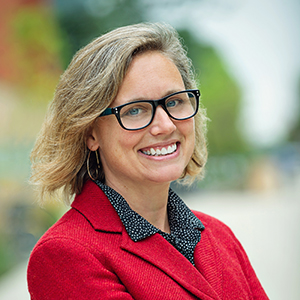 Abstract: The Triple E Framework was developed in 2011 by Dr. Liz Kolb at the University of Michigan. The Triple E Framework provides research-based guidance to preservice and inservice teachers when integrating technology into lesson design. The framework emphasizes the importance of the learning goal driving the technology choices, and using research-based pedagogical strategies in conjunction with technology tools. The framework is now being used in numerous K-12 school districts and teacher preparation classes across the United States and beyond. The Triple E Framework was found to be both valid and reliable by an independent study in 2019. This spotlight session will introduce the Triple E framework by sharing the research that informs the framework as well as a step by step guide on how teacher educators can use the framework to support preservice teachers in designing lessons where the technology is adding value to the learning goals. The session will include hands-on activities using the Triple E Framework. The Triple E Framework is a open source tool that is available at no cost.
Abstract: The Triple E Framework was developed in 2011 by Dr. Liz Kolb at the University of Michigan. The Triple E Framework provides research-based guidance to preservice and inservice teachers when integrating technology into lesson design. The framework emphasizes the importance of the learning goal driving the technology choices, and using research-based pedagogical strategies in conjunction with technology tools. The framework is now being used in numerous K-12 school districts and teacher preparation classes across the United States and beyond. The Triple E Framework was found to be both valid and reliable by an independent study in 2019. This spotlight session will introduce the Triple E framework by sharing the research that informs the framework as well as a step by step guide on how teacher educators can use the framework to support preservice teachers in designing lessons where the technology is adding value to the learning goals. The session will include hands-on activities using the Triple E Framework. The Triple E Framework is a open source tool that is available at no cost.
Bio: Liz is a clinical associate professor of education technologies at The University of Michigan in Ann Arbor, MI. She teaches courses in education technology for the undergraduate elementary, undergraduate secondary, and Masters and Certification programs. She authored Toys to Tools: Connecting Student Cell Phones to Education (published by ISTE in 2008), Cell Phones in the Classroom: A Practical Guide for the K-12 Educator (published by ISTE in 2011), Help Your Child Learn With Their Cell Phone and Web 2.0 (published by ISTE in 2013), Learning First, Technology Second (published by ISTE in 2017). In addition, Liz has published numerous articles and book chapters on new technologies and education in prominent publications such as Education Leadership, School Administrator Magazine, Scholastic, Edutopia, ISTE’s Edtekhub, and Learning and Leading with Technology. Liz has done consulting work and has been a featured and keynote speaker at conferences all over the United States and Canada. She is the president-elect of MACUL and the co-chair of the Innovation and Technology Advisory Committee for AACTE. She is passionate about engaging students in education and leveraging learning opportunity through digital technologies. Liz is also the creator and coordinator of the Triple E Framework, which is an open-source framework for K-12 teachers and administrators to use to assess the effectiveness of technology in lesson plans. Liz is a former social studies and computer technology teacher. In addition she spent 4 years as a technology coordinator and integration specialist in Ohio.
Spotlight @ SITE Speaker
Project-based Online Learning: An instructional strategy to translate PBL into distance learning environments
Anissa Lokey-Vega, Ph.D.
Kennesaw State University
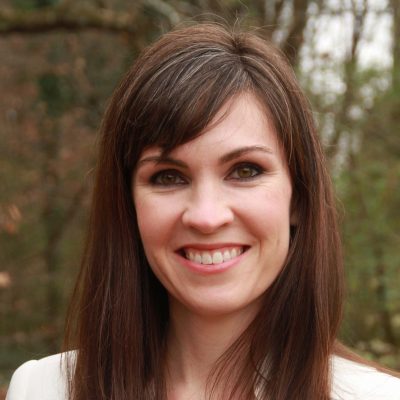 Abstract:The online environment limits opportunities for classroom dialog and requires the learner to be highly autonomous; however, K-12 leaners, especially young ones, may struggle in this environment as their self-regulation processes are still in development. In a face-to-face or blended classroom space, a teacher can provide frequent feedback, redirection, and clarification on higher order learning activities to mitigate misunderstandings and frustrations. However, when translated online, such loosely structured learning experiences may be difficult for learners with limited skills to enact autonomy. K-12 learners who are online may benefit from some additional structure to scaffold success in higher order learning activities such as Project-Based Learning. The Project-Based Online Learning (PBOL) model will help teachers more fully communicate to their learners the content and expectations of an online learning experience that requires higher order thinking. While designed to solve an authentic problem in the K-12 online environment, this strategy can be used with college and adult learners as well. This online instructional strategy requires teachers to use a learning management system and a screencasting software tool of their choice; however, this presentation will focus on pedagogical strategies and not include any specific training on software tools.
Abstract:The online environment limits opportunities for classroom dialog and requires the learner to be highly autonomous; however, K-12 leaners, especially young ones, may struggle in this environment as their self-regulation processes are still in development. In a face-to-face or blended classroom space, a teacher can provide frequent feedback, redirection, and clarification on higher order learning activities to mitigate misunderstandings and frustrations. However, when translated online, such loosely structured learning experiences may be difficult for learners with limited skills to enact autonomy. K-12 learners who are online may benefit from some additional structure to scaffold success in higher order learning activities such as Project-Based Learning. The Project-Based Online Learning (PBOL) model will help teachers more fully communicate to their learners the content and expectations of an online learning experience that requires higher order thinking. While designed to solve an authentic problem in the K-12 online environment, this strategy can be used with college and adult learners as well. This online instructional strategy requires teachers to use a learning management system and a screencasting software tool of their choice; however, this presentation will focus on pedagogical strategies and not include any specific training on software tools.
Bio: Anissa Lokey-Vega, Ph.D., is an Associate Professor of Instructional Technology at Kennesaw State University. Currently she is serving as the Interim Assistant Vice President of Curriculum and Academic Innovation for her institution. Her scholarship has focused on new learning models including MOOCs, Project-based Online Learning, and Personalized Learning in K-12, college, and teacher professional development.
Spotlight @ SITE Speakers
Using Asynchronous Video to Stay Connected While Apart
Leanna Archambault, Arizona State University & Jered Borup, George Mason University
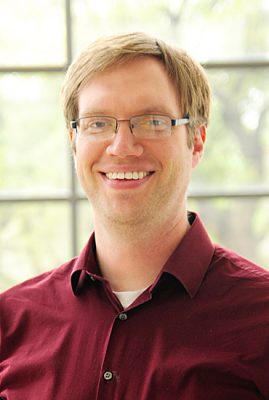
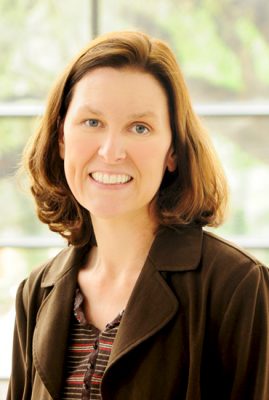 Abstract: Too often students can feel isolated while physically separated from their instructor and peers in online courses. While community can be formed using text, it can be time-consuming and difficult when visual communication cues are absent. Some courses rely on synchronous video communication using popular tools such as Zoom. However, synchronous video calls can remove the flexibility in time that many students require and can be prone to technical difficulties and student distraction. Asynchronous video communication (video messaging) can combine the convenience of text with the fidelity of video calls and can be a fexibilble but effecient way to form online learning communities. In our presentation we will share practical strategies for using asynchronous video communication to quickly form a sense of community with students. Specifically we will share (a) available asynchronous video communication tools, (b) communication strategies that help to establish a sense of social presence online, and (c) example learning activities that you can incorporate into your courses.
Abstract: Too often students can feel isolated while physically separated from their instructor and peers in online courses. While community can be formed using text, it can be time-consuming and difficult when visual communication cues are absent. Some courses rely on synchronous video communication using popular tools such as Zoom. However, synchronous video calls can remove the flexibility in time that many students require and can be prone to technical difficulties and student distraction. Asynchronous video communication (video messaging) can combine the convenience of text with the fidelity of video calls and can be a fexibilble but effecient way to form online learning communities. In our presentation we will share practical strategies for using asynchronous video communication to quickly form a sense of community with students. Specifically we will share (a) available asynchronous video communication tools, (b) communication strategies that help to establish a sense of social presence online, and (c) example learning activities that you can incorporate into your courses.
Bio: Dr. Leanna Archambault is an Associate Professor of Learning Design and Technology within the Mary Lou Fulton Teachers College at Arizona State University. Her research areas include teacher preparation for K-12 online and blended classrooms, the use of innovative technologies to improve learning outcomes, and sustainability literacy for preservice and inservice teachers. Archambault serves the SITE’s IT Council Chair and together with Dr. Jered Borup, she is the Co-Editor of the Journal of Online Learning Research, AACE’s open access journal focused on publishing research related to K-12 online and blended learning. Prior to entering the field of teacher education, she taught middle school English/language arts in the Clark County School District in Las Vegas, Nevada.






